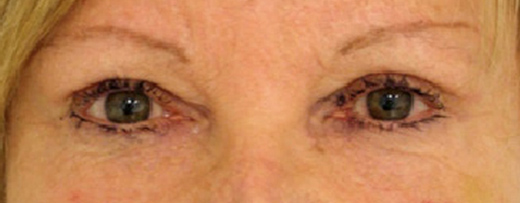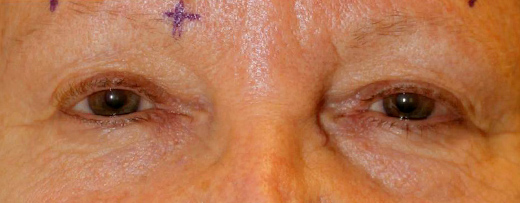Eyebrows Lift
Eyebrows Lift is the appropriate surgery to restore them to their original height and improve the look of the face. This procedure is often combined with upper blepharoplasty.
As years go by, the skin of the forehead loses its elasticity and the eyebrows gradually become heavier as well as the upper eyelids. Every day we raise the eyebrows beyond our conscience, to relieve the upper eyelid from the weight of excess skin and that movement aggravates the wrinkles of the forehead.
Eyebrows Lift – Application
- Aesthetic applications
Lift of the eyebrows - Reconstructive applications
In case of facial paralysis, an eyebrow drop is to be observed. In this case, the lift of the brows helps to restore symmetry, while the lack of movement becomes less distinct.
In the case of surgical intervention in one part of the forehead, which resulted in raising the eyebrow, we can restore the symmetry by raising the other accordingly, always aiming to an aesthetically pleasing result.
Eyebrows Lift – Type of anesthesia
The above procedure can be performed either with local or with total anesthesia. No hospitalization is required. The incision is about 2 cm long and carried out inside the hairline of each side.
Eyebrows Lift – Postoperative instructions
- The stitches are removed at 15 days postoperatively.
- The patient can return to everyday activities after 5-7 days.
- Physical exercise is recommended after 2 weeks.
Preparation before surgery
- Photographs of the area are taken.
- Classical preoperative check-up includes blood tests, chest X-ray, and cardiac evaluation.
- 12 hours before surgery do not eat anything.
- 6 hours before surgery do not drink anything.
- On the morning of the operation do not take any medication without the anesthesiologist's approval.
- Alcohol should be stopped 1 week before surgery.
- In the case of general anesthesia, it is necessary to meet with the anesthesiologist before the surgery.
- Report previous anesthetic experiences, either positive or negative and inform him/her of any health problems or medication you are taking.
- Do not take aspirin, anti-inflammatory drugs, or herbal supplements 10 days before the surgery, as they increase the possibility of bleeding during and after surgery.
- 3 days before the surgery and every day after washing your face or body with medicated soap, depending on the planned surgery.
General Complications after surgery
Complications in plastic surgery operations are not common but it is necessary to be aware of them at the first appointment.
- Hematoma: A hematoma is the accumulation of blood in the wound.
- Inflammation: To prevent inflammation, antibiotics are administered during surgery.
- Poor wound healing: If the incision in the operated site is more prominent than expected, it can be corrected 6 months to a year after surgery with local anesthesia. In some cases, the appearance of keloids is possible where specific treatment is needed.
- Skin necrosis: It is more likely in heavy smokers.
- Pulmonary embolism and thrombosis.
This text may give rise to new questions. We are at your disposal for any other information.





